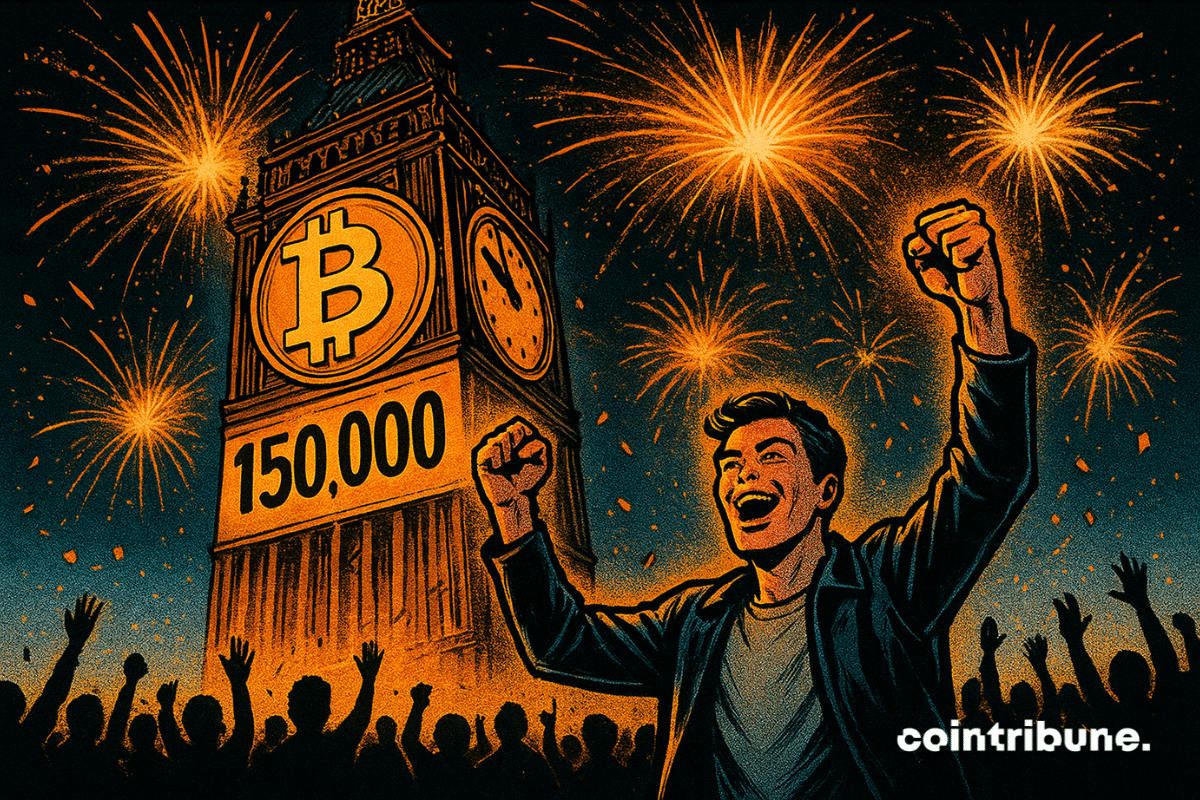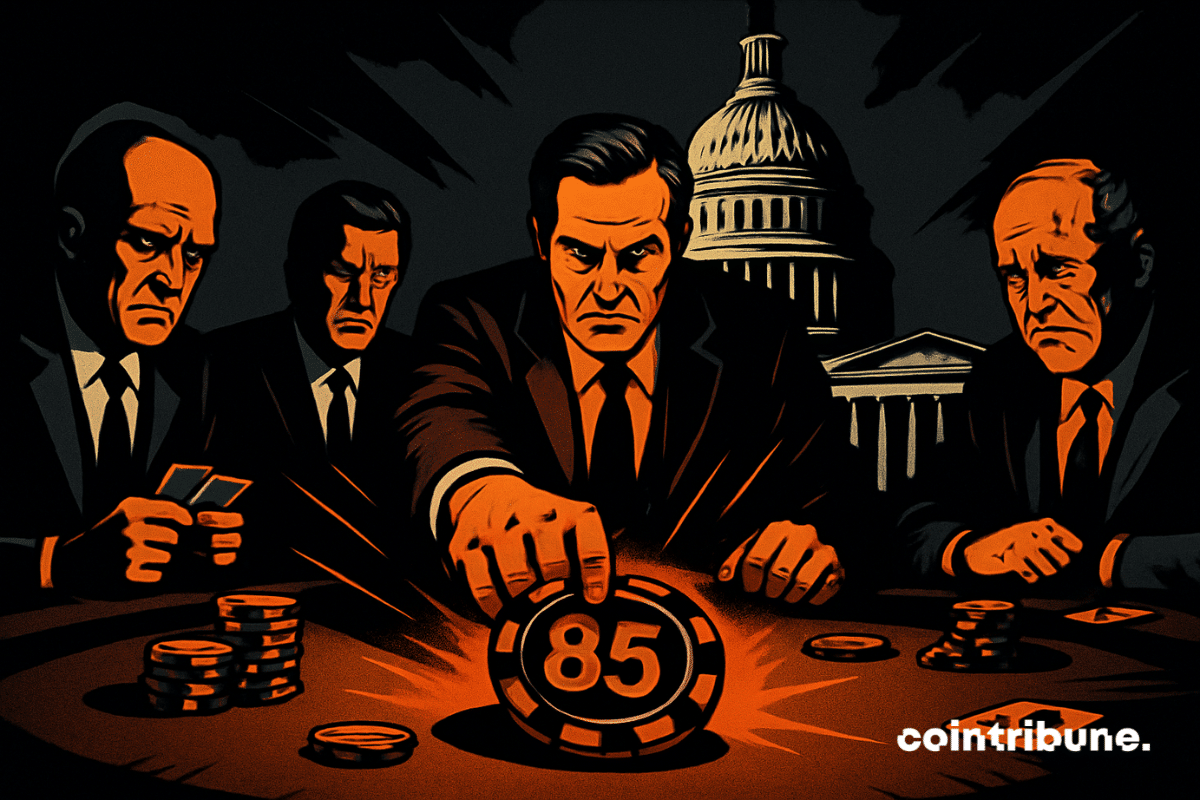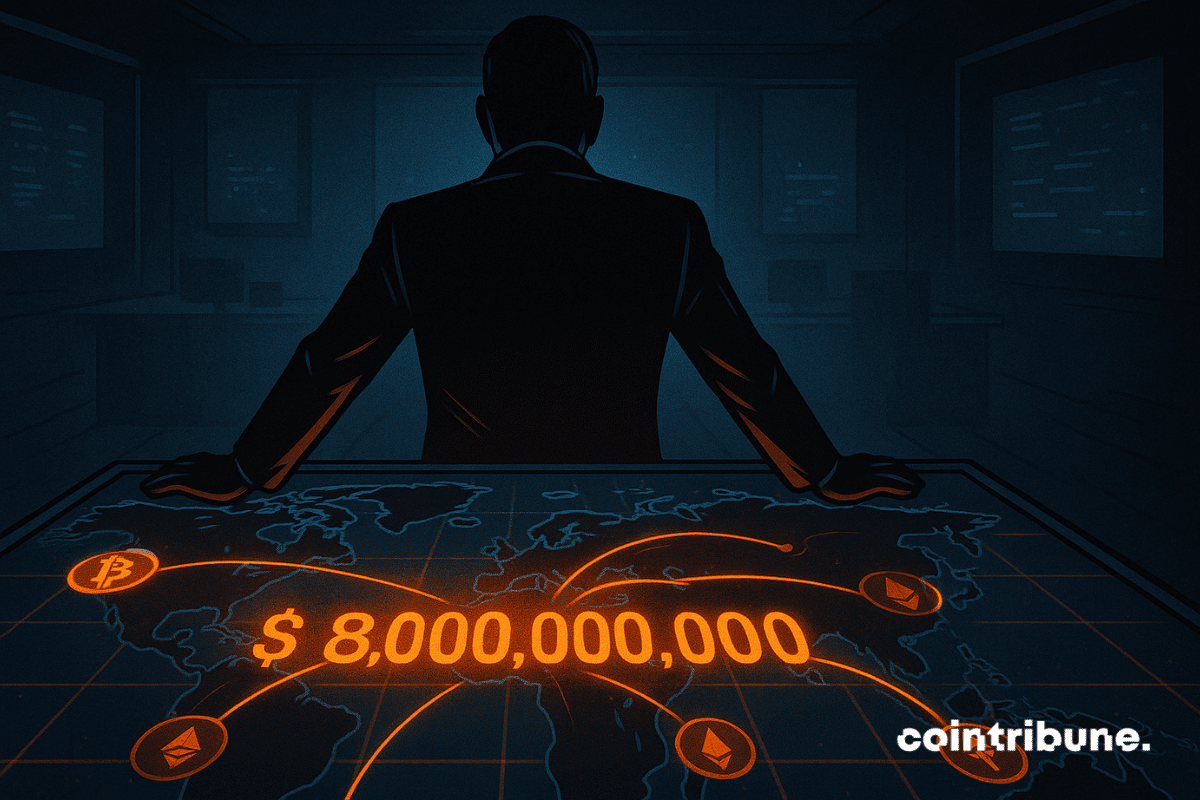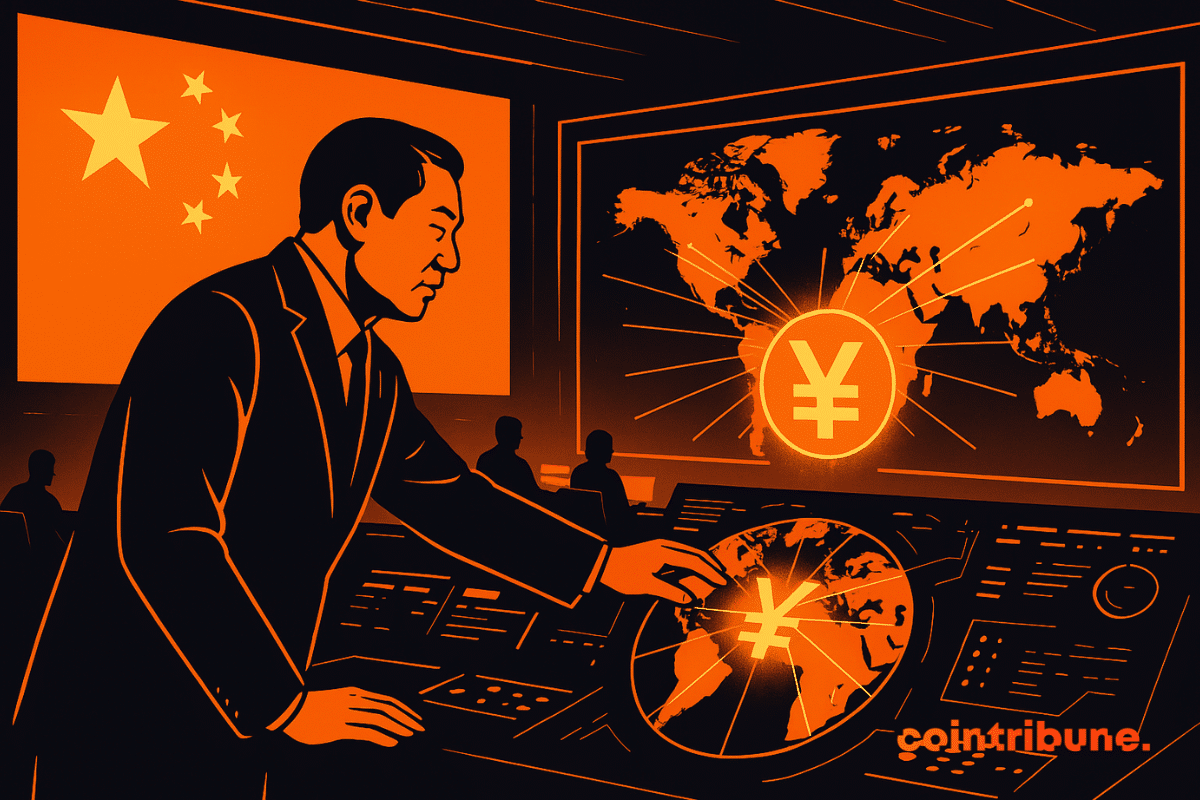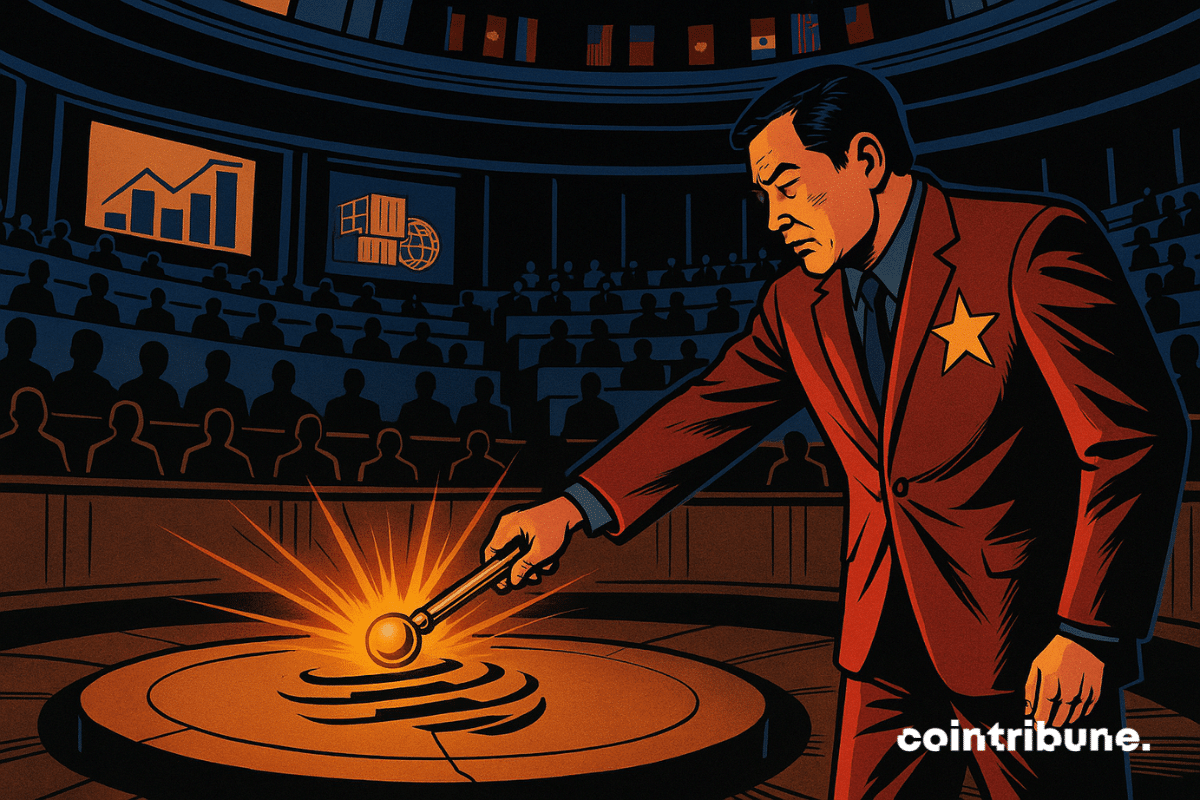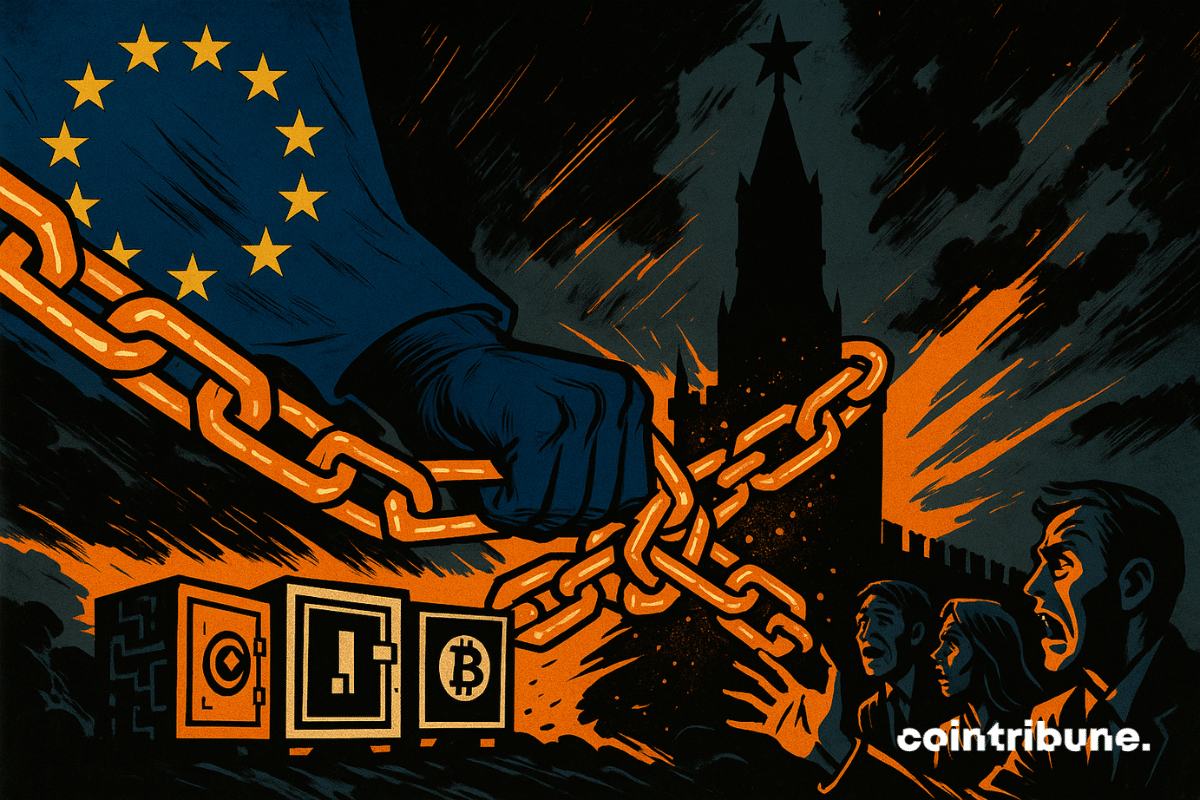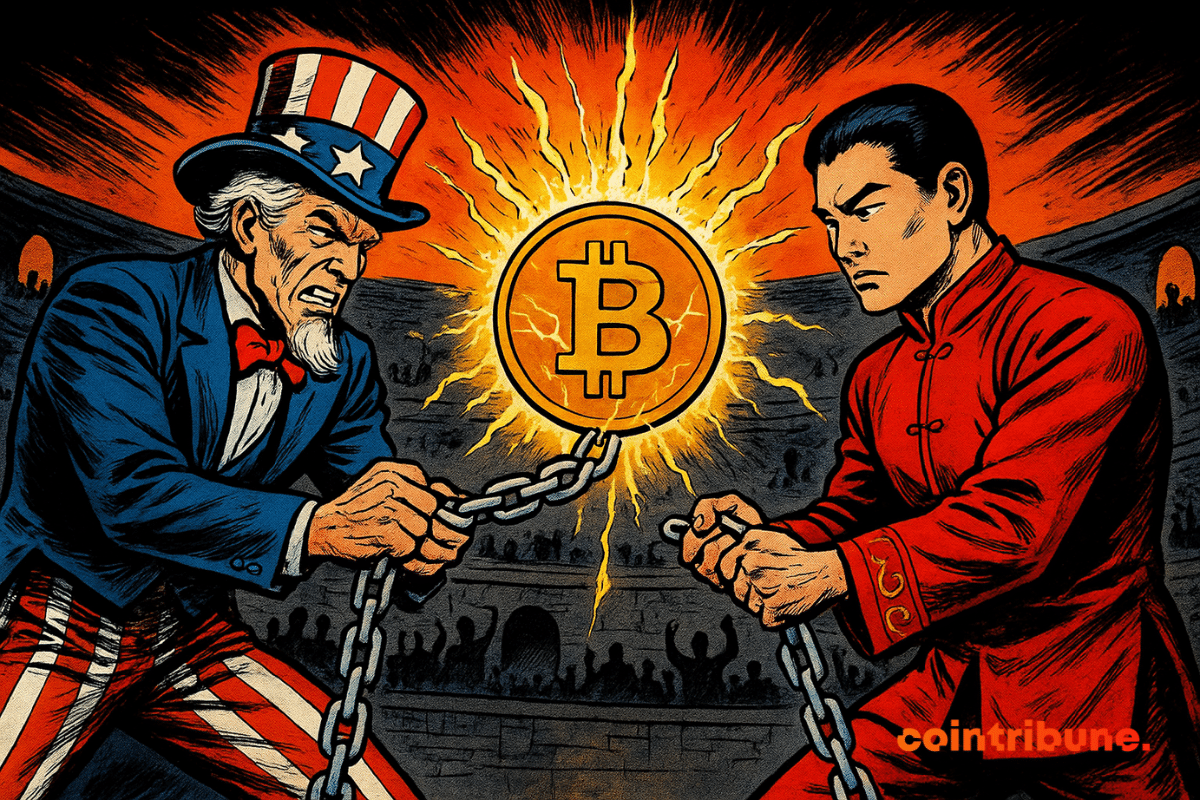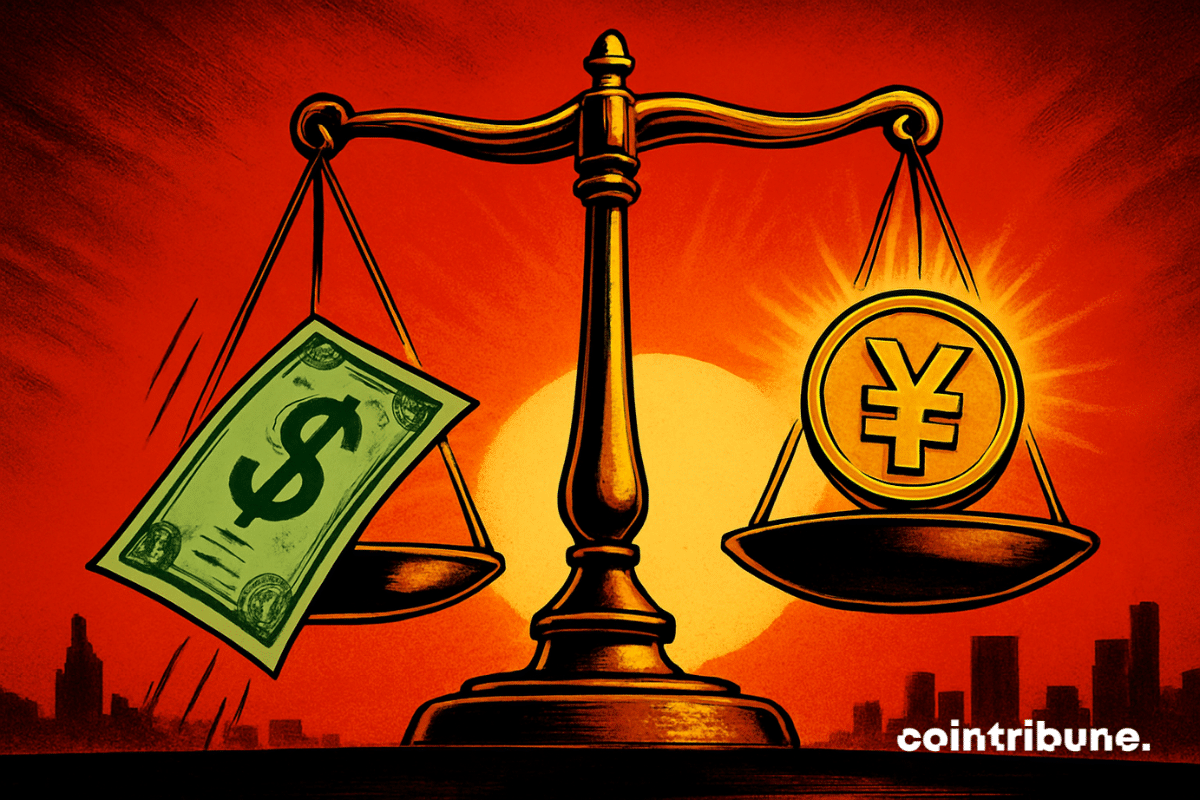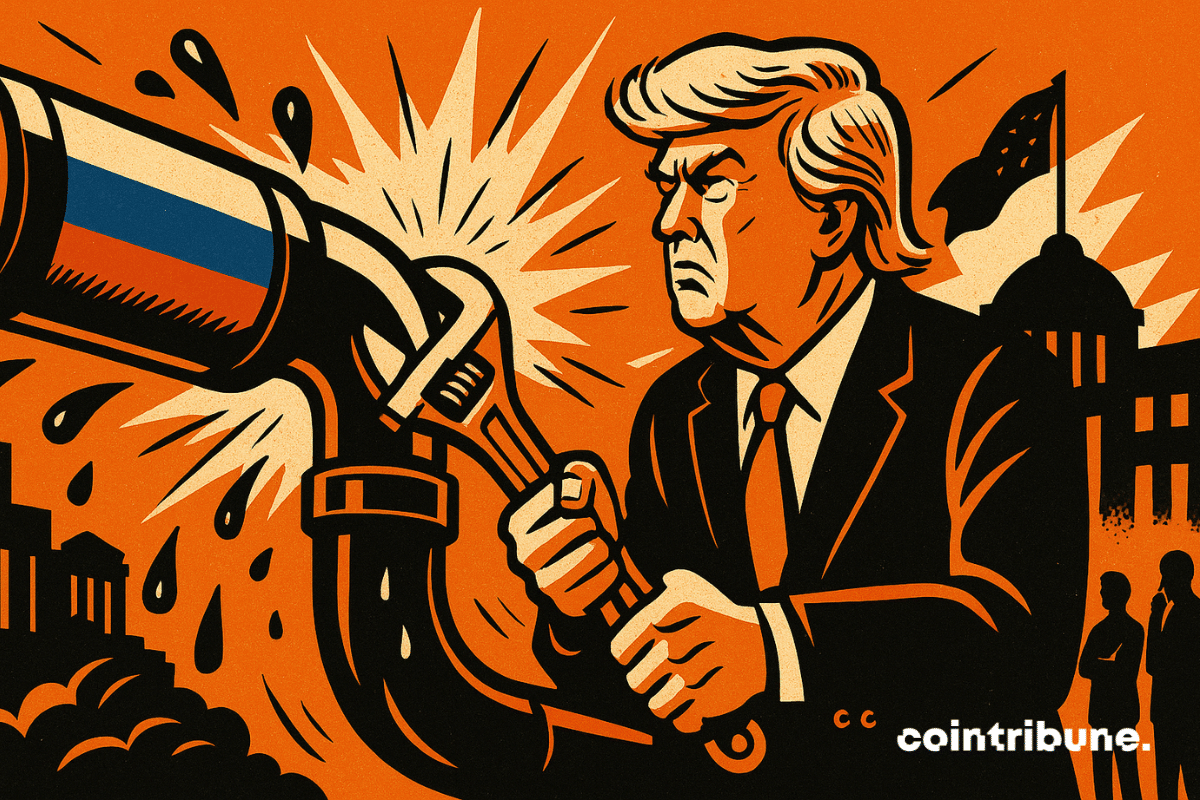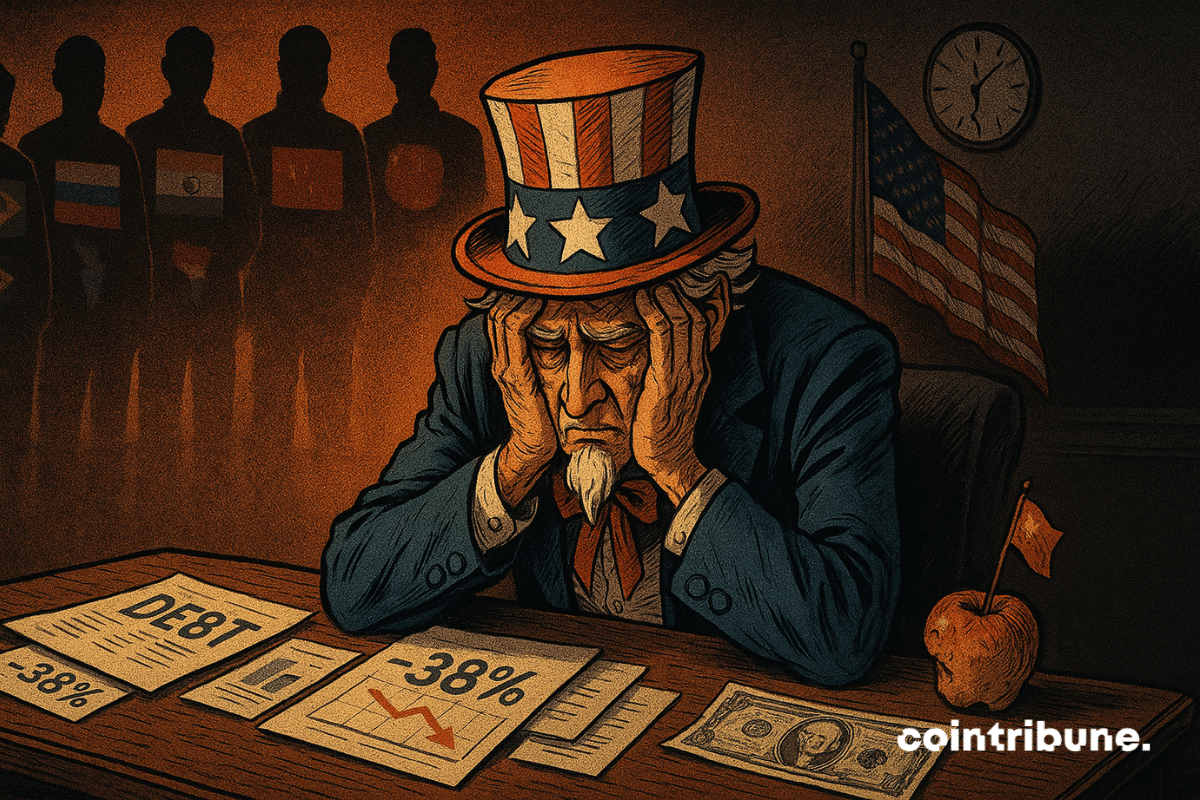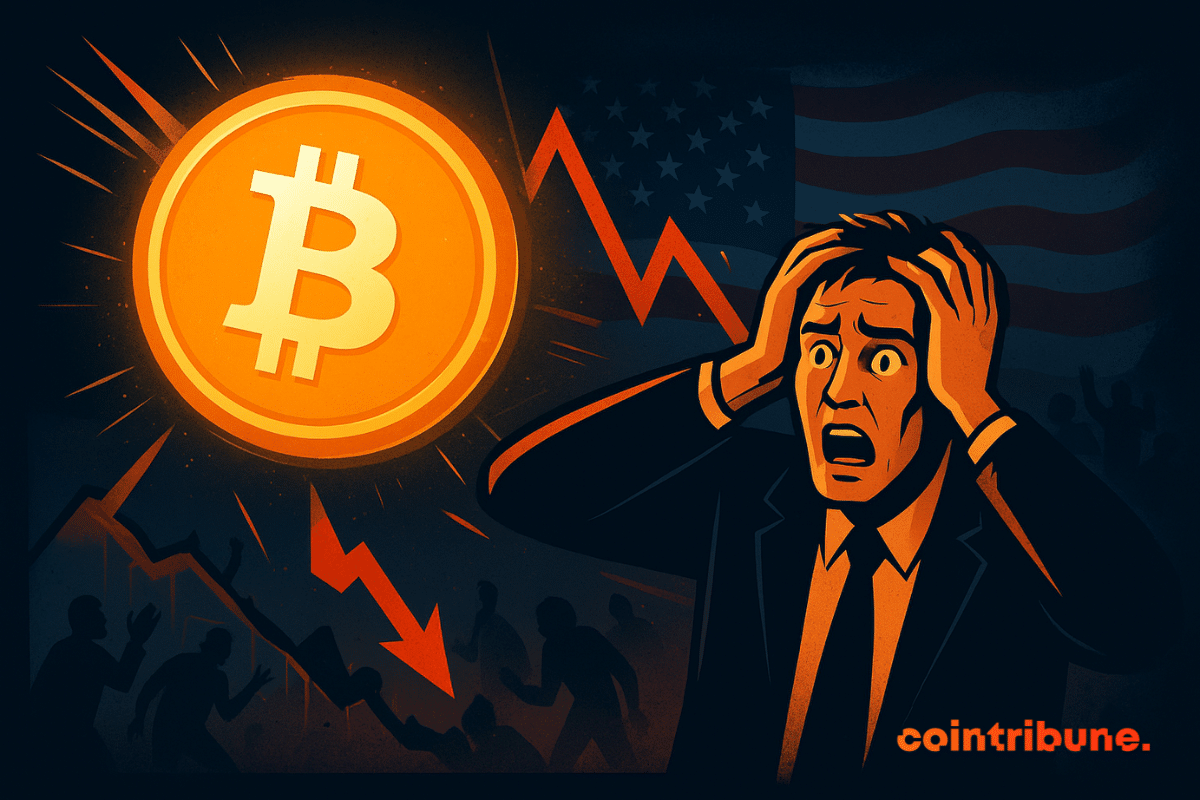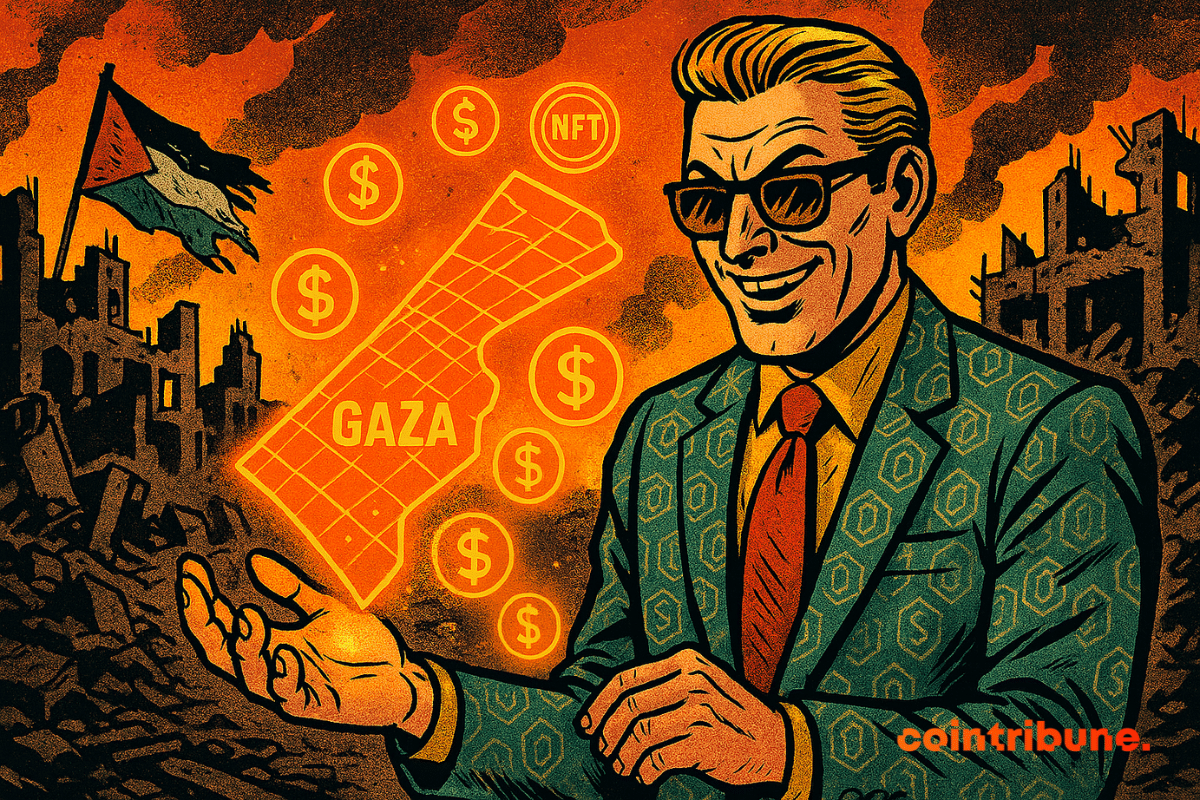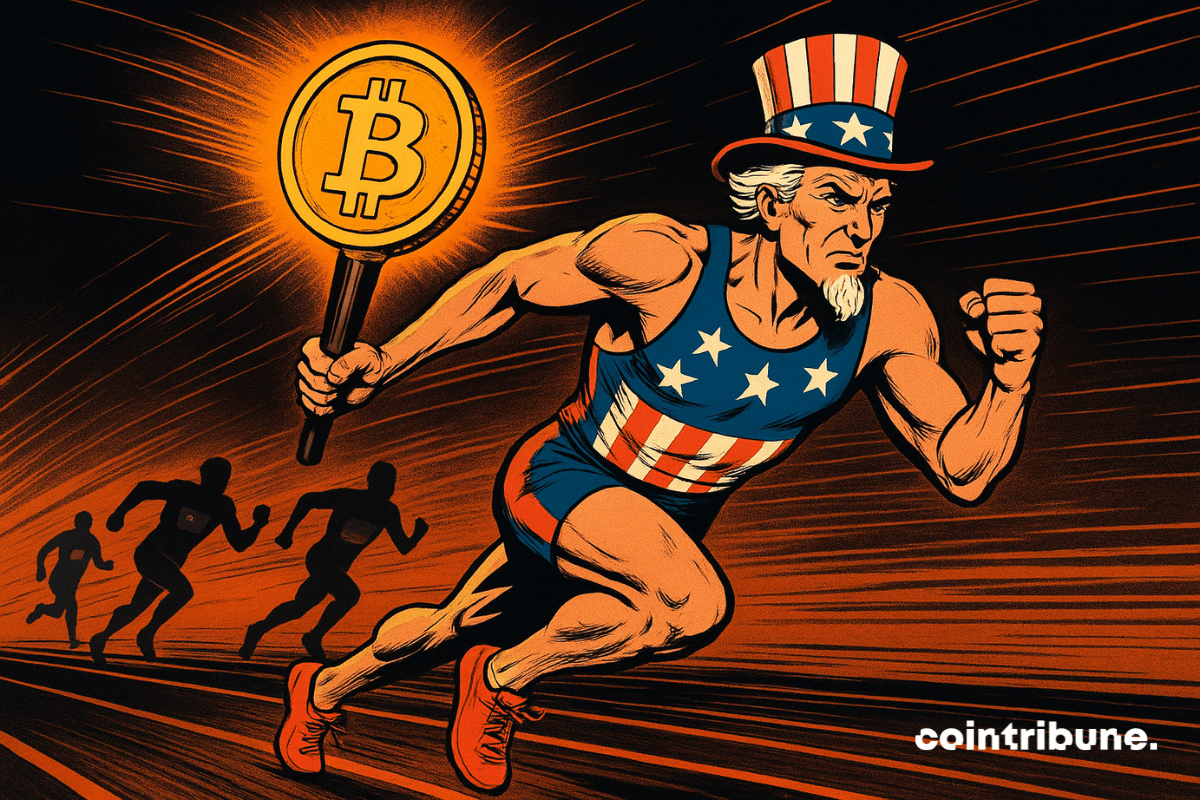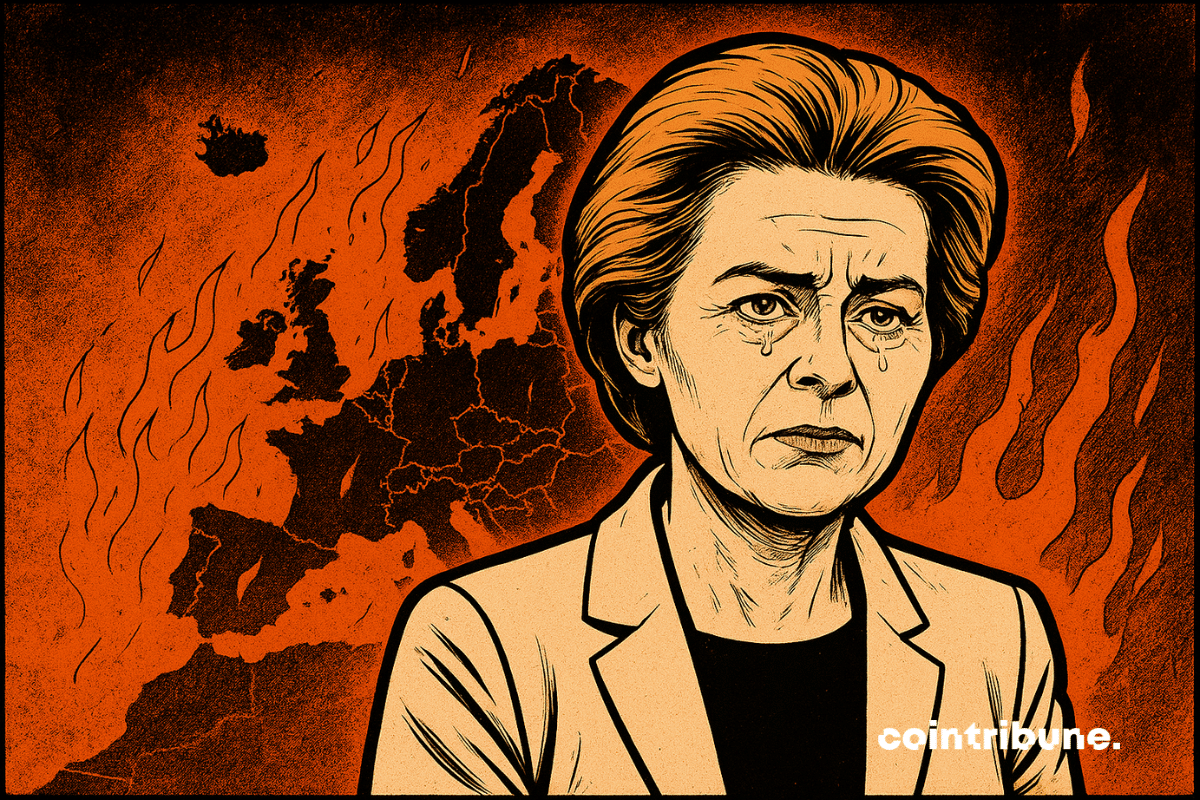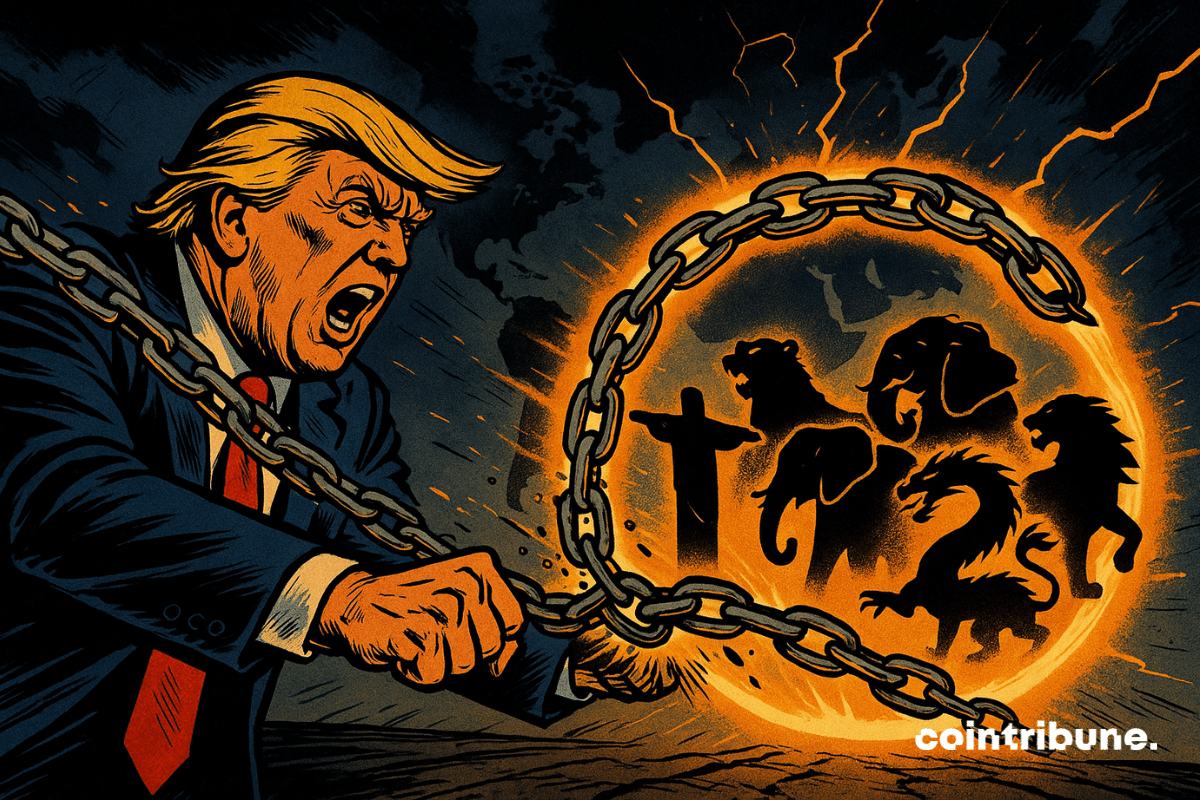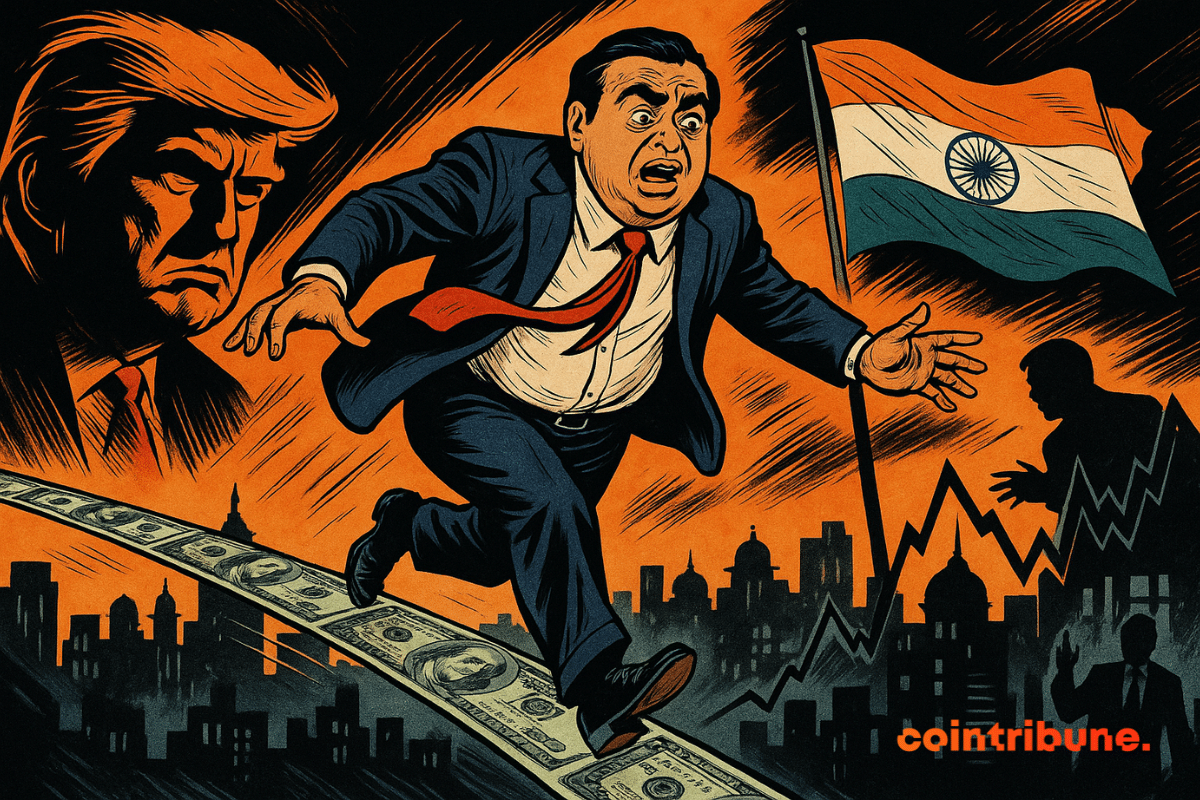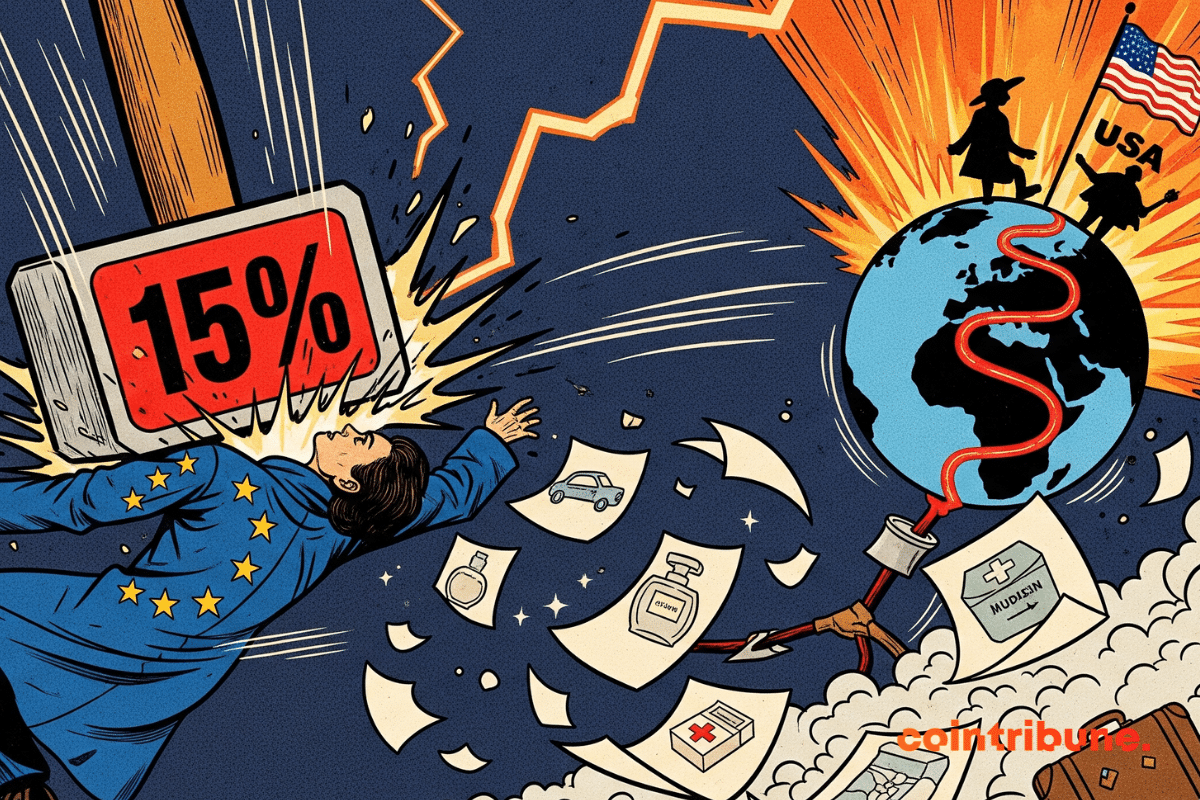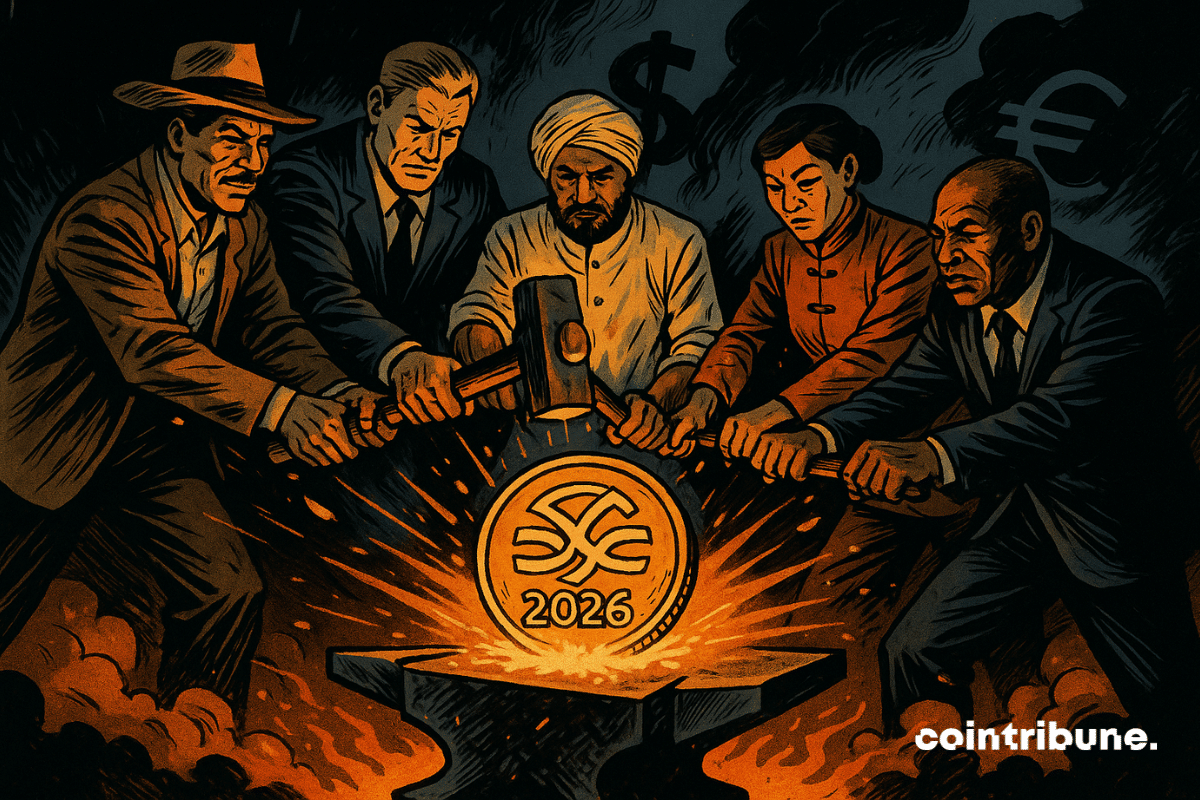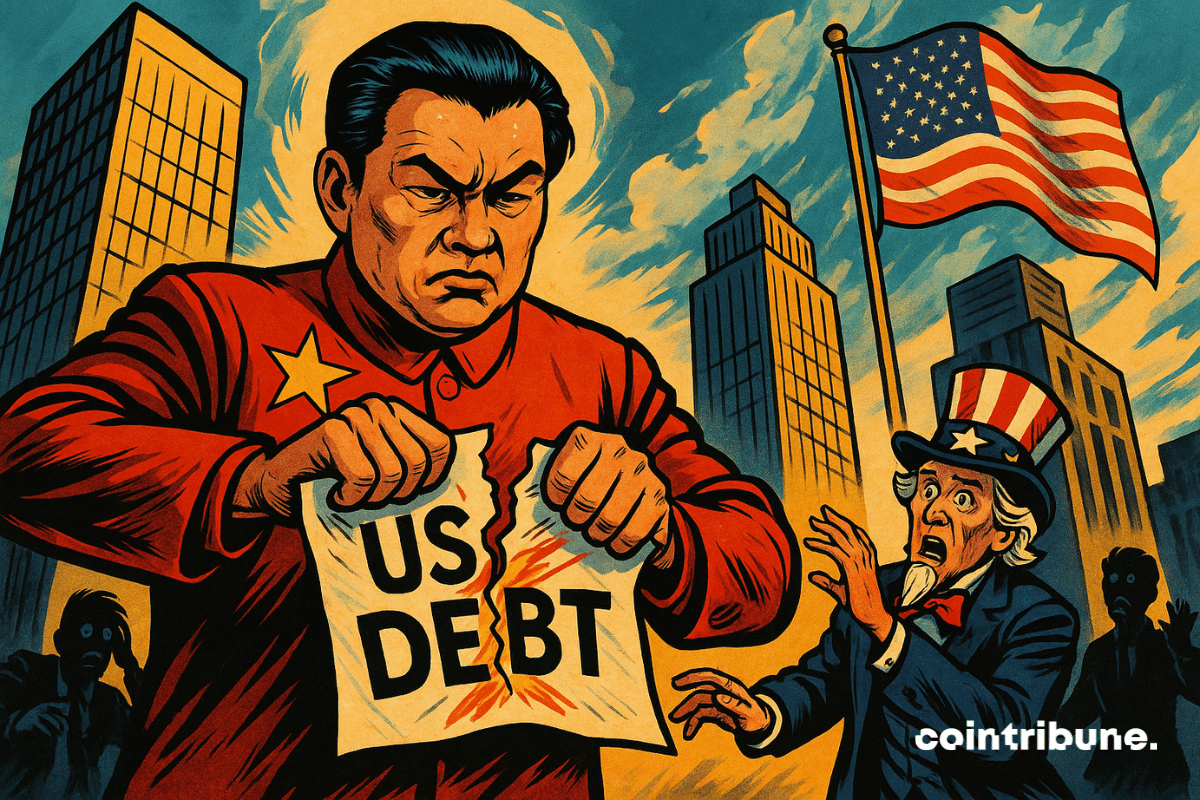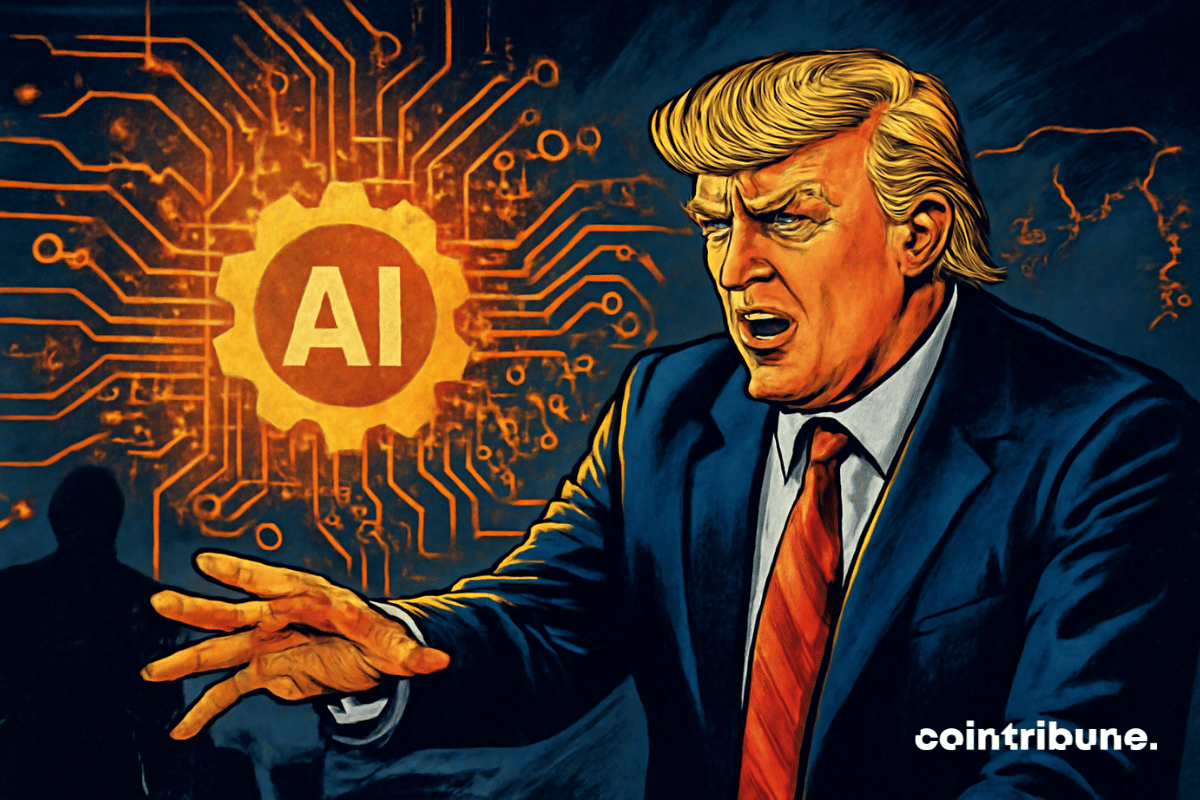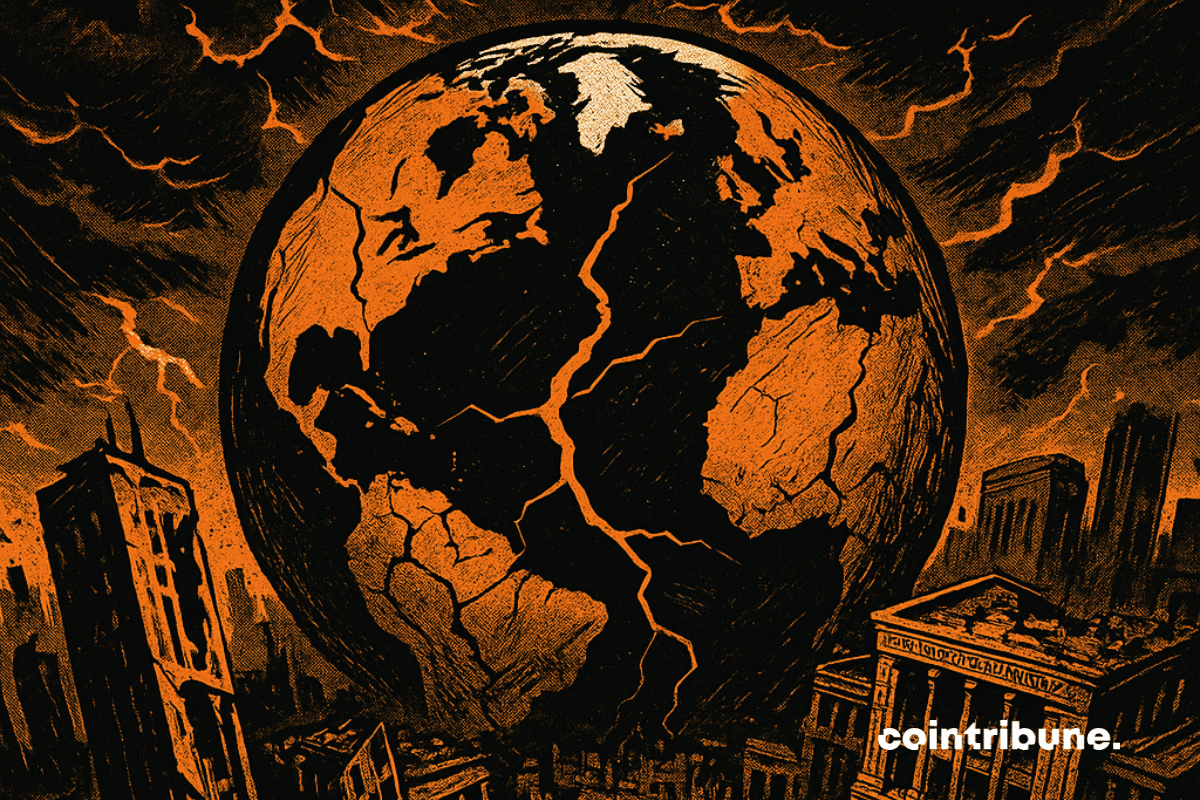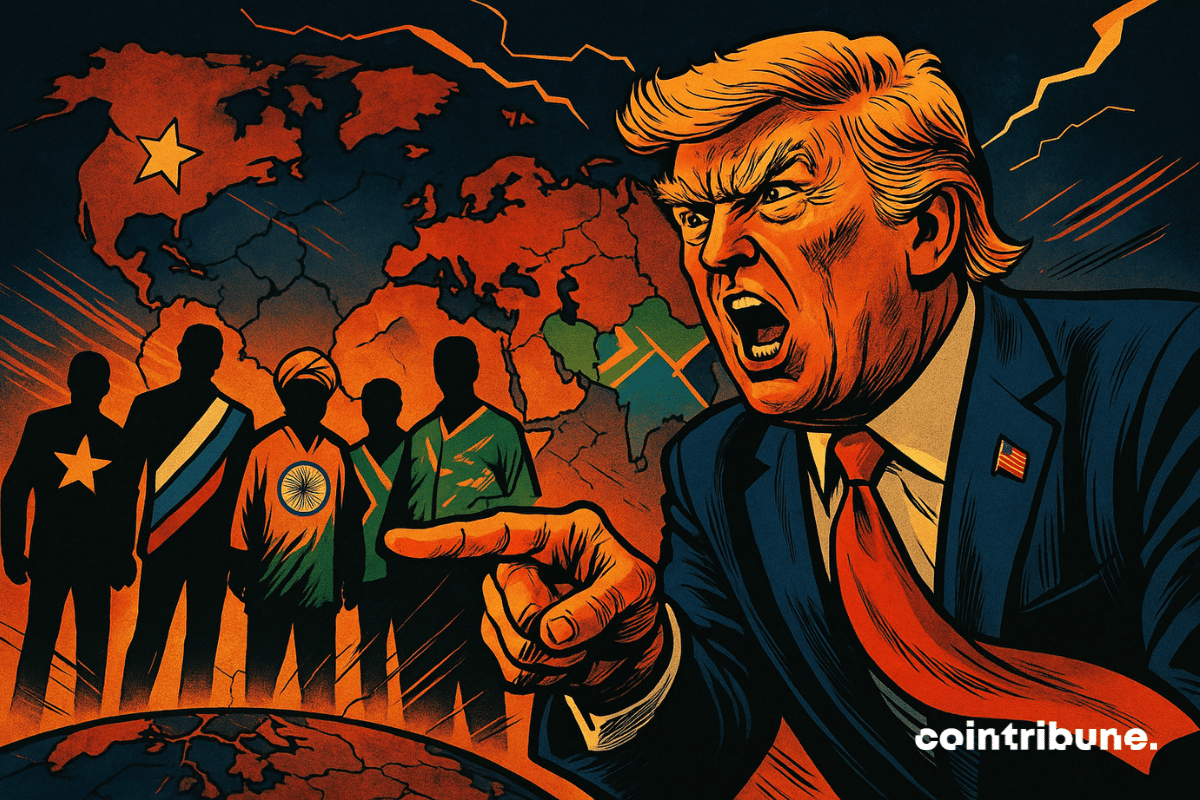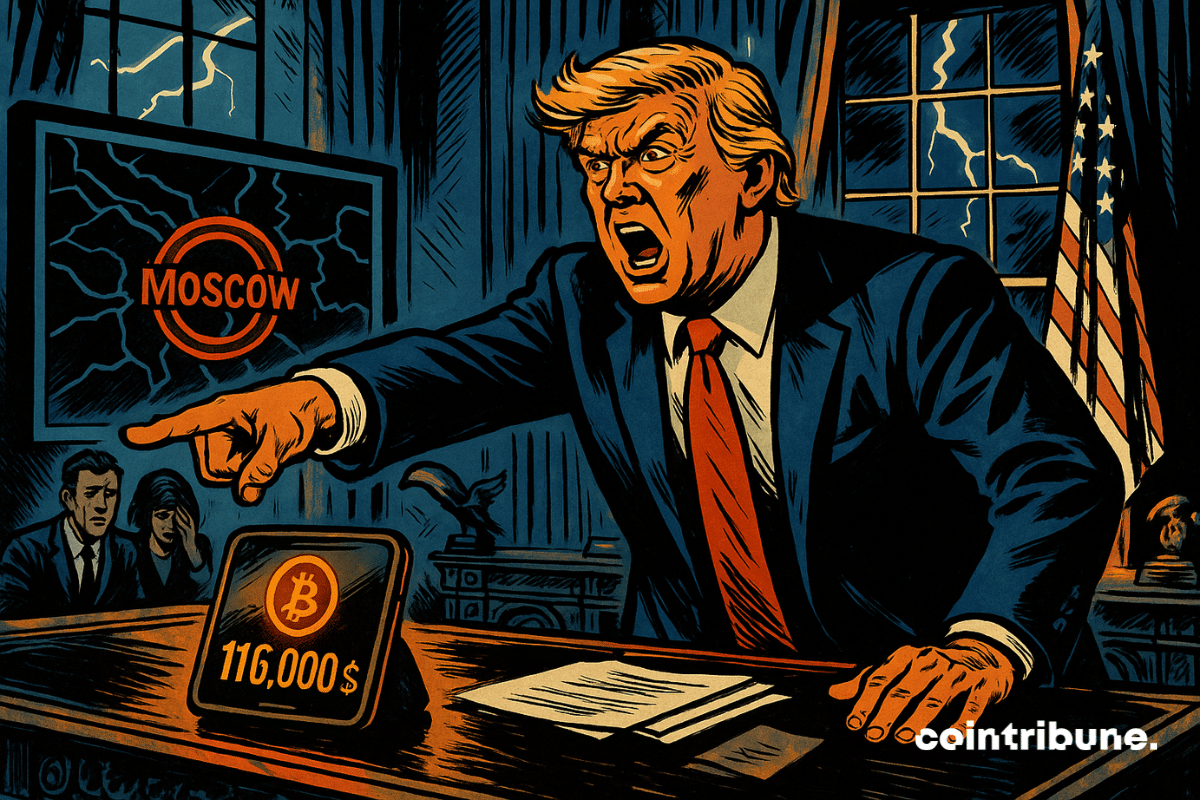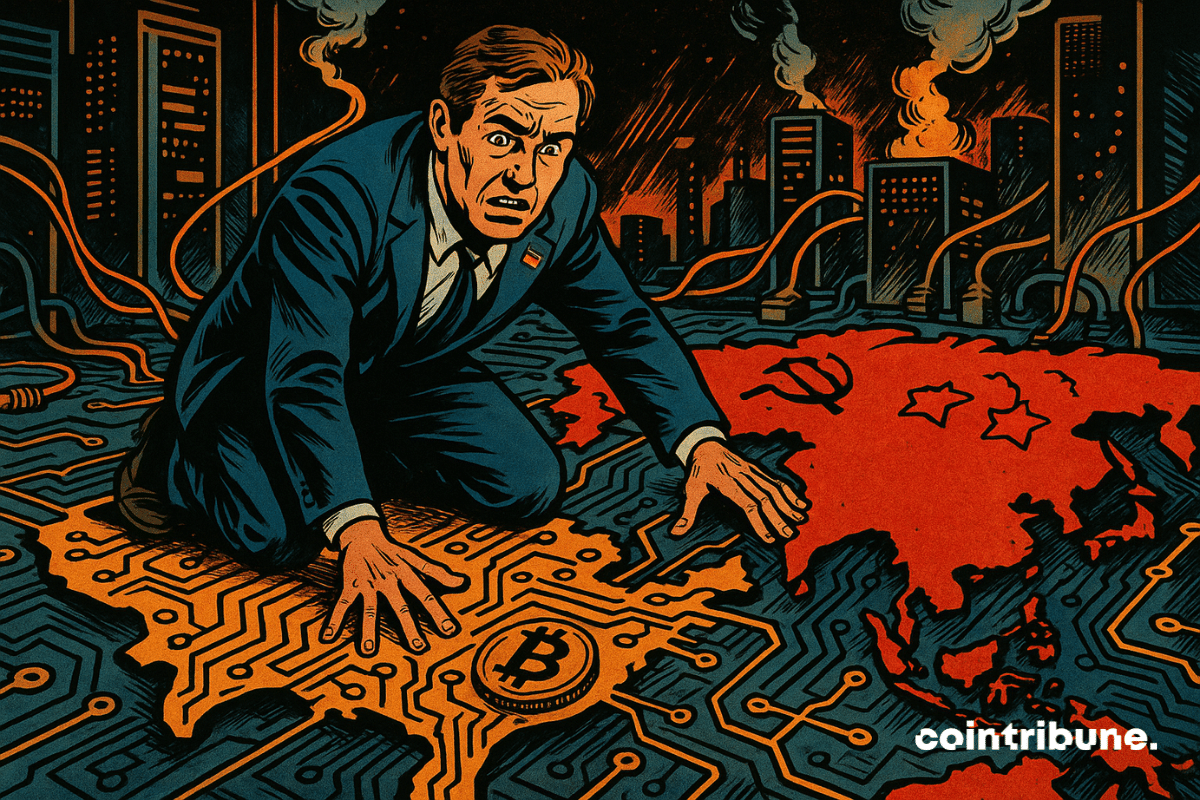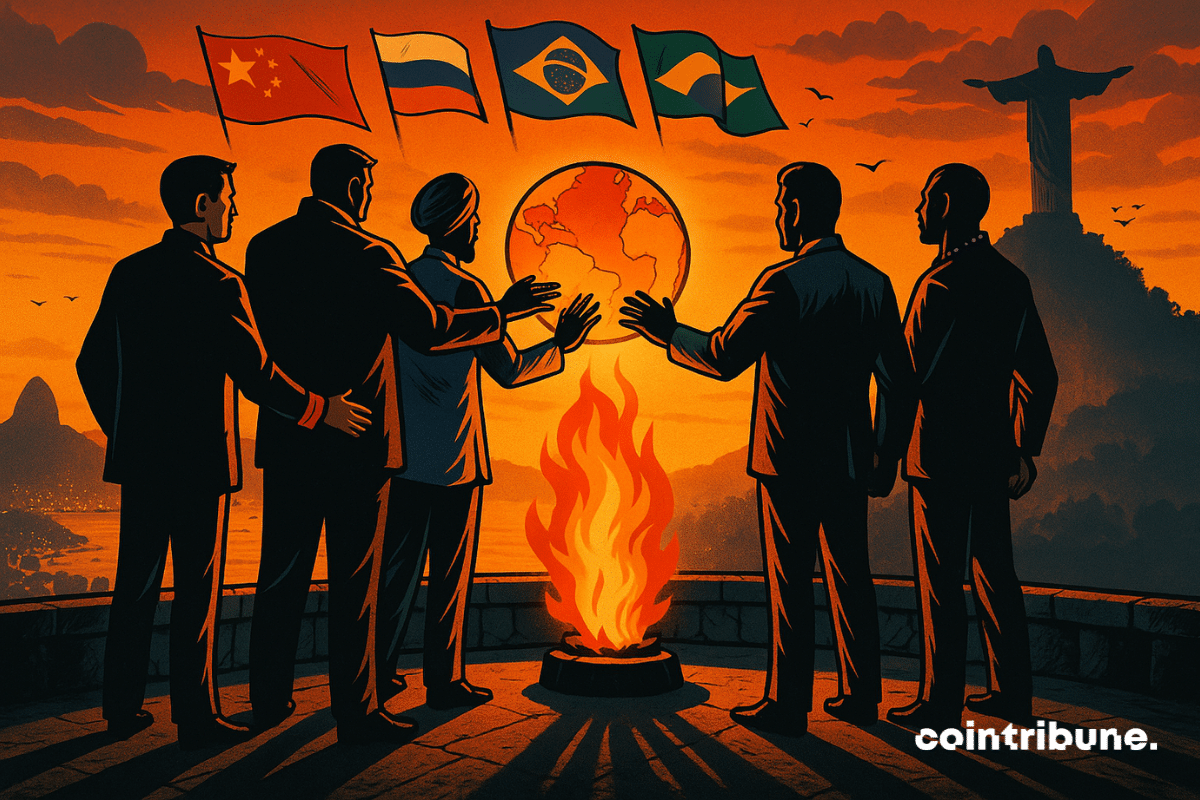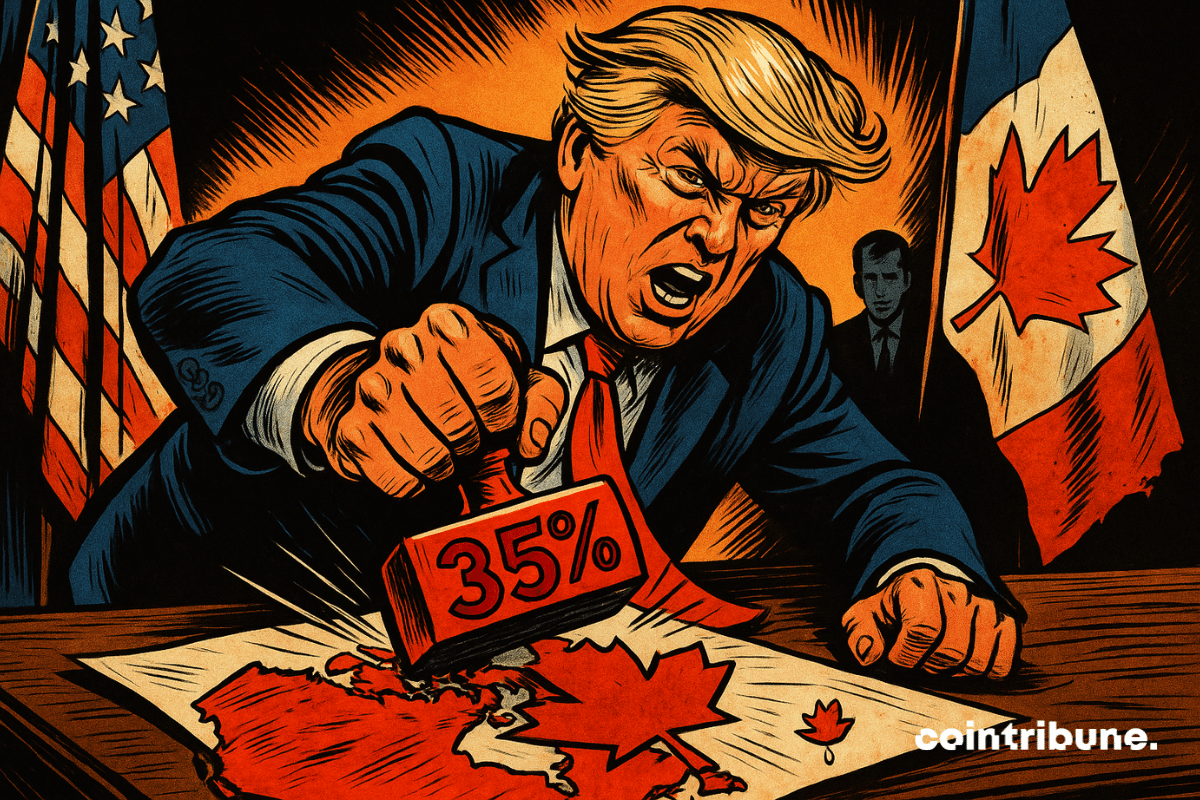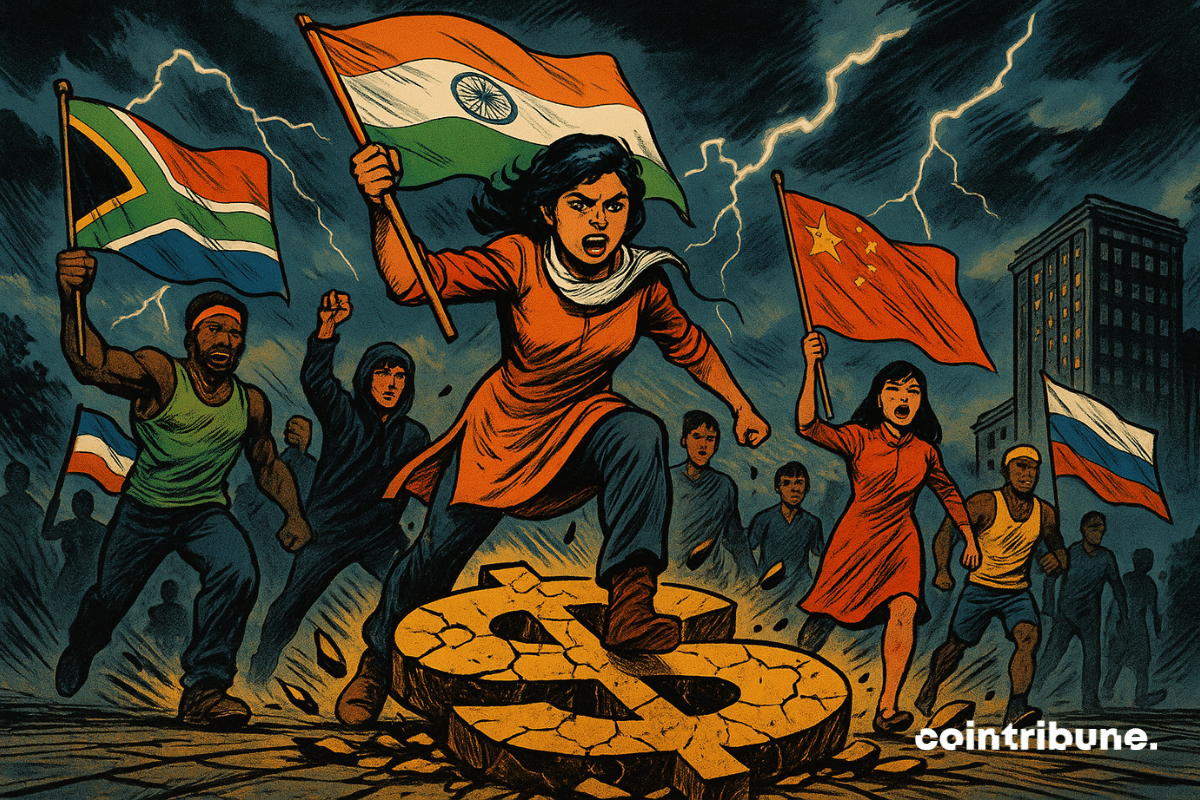Bitcoin consolidates above 100,000 dollars, driven by institutions and the anticipation of the outcome of the "BITCOIN Act."
Theme Geopolitics
The possibility of a U.S. government shutdown is dominating prediction markets, with traders betting heavily on the outcome. Platforms like Kalshi and Polymarket show a strong consensus that negotiations in Washington are unlikely to deliver a deal in time. Rising volumes and market probabilities above 85% suggest that participants see a shutdown as the most likely outcome.
Explosive leaks reveal how a Moscow-linked network allegedly manipulated the global financial system through crypto. Eight billion dollars in stablecoin transactions were reportedly used to bypass Western sanctions and influence the Moldovan political scene. A disturbing indicator of a new hybrid war where digital money becomes a weapon of influence.
The People’s Bank of China (PBOC) has just inaugurated an international center dedicated to the digital yuan in Shanghai. A strong signal: Beijing wants to impose its e-CNY as a pivot of a new global monetary order. Can this initiative really challenge the dollar’s hegemony and compete with stablecoins dominated by the greenback?
China announces that it is giving up some of its privileges at the WTO. This move, described as "major" by the organization's director-general, Ngozi Okonjo-Iweala, reshuffles the cards of global trade. Made by Li Qiang himself, this decision marks a strategic shift for Beijing authorities, long accused of unfairly benefiting from multilateral rules.
As the conflict in Ukraine drags on, the European Union opens a new front: that of cryptos. For the first time, Brussels plans to directly sanction crypto platforms, integrating these decentralized infrastructures into its economic measures against Moscow. A discreet but strategic shift, integrating cryptos into the realm of international pressure tools.
What will China do if the United States truly start selling gold to embrace bitcoin?
The internationalization of the Chinese currency is no longer a fantasy. The growth of international payments in yuan is skyrocketing. Bitcoin is lurking.
As the war in Ukraine enters a critical phase, Donald Trump throws a wrench in the diplomatic pond. The American president stated that no new sanctions against Moscow would be taken as long as NATO countries continue to buy Russian oil. This statement exposes the persistent fractures within the Alliance and revives the question of its strategic coherence towards Russia.
More and more businesses are accumulating bitcoins, but also more and more countries. The latest is Kyrgyzstan, a small Central Asian country.
As economic tensions intensify between major powers, a dissenting voice challenges the dominant narrative in Washington. According to Boris Kopeikin, chief economist at the Stolypin Institute, the US trade deficit with China is not the result of a BRICS strategy, but rather a structural weakening of the American economy. This interpretation reignites the debate on the root causes of American imbalances in a world undergoing major reconfiguration.
American crude is losing ground. This week, the Indian Oil Corporation (IOC), India’s leading public refiner, turned its back on shipments from the United States to refocus on the Middle East and West Africa. This logistical rebalancing, seemingly technical, reflects a strategic shift: the rise of energy alliances within the BRICS, the decline of the dollar in oil trade, and the assertion of a new economic order.
Reports from the U.S. labor market sent shockwaves through the financial markets, prompting risk assets like Bitcoin to experience sharp price swings. With job data for August coming in lower than expected, predictable alarms erupted regarding a looming recession, which could drive fresh appetite towards risk assets.
Crypto, blockchain and AI at the heart of a controversial project for Gaza. Discover all the details in this article.
The United States and the presidential circle are all-in on bitcoin while Europe continues to fall behind.
It's not just Bayrou's France that is struggling. Europe is going through a systemic crisis that the ECB's printing press can no longer solve. Despite years of massive injections, the eurozone is sinking into a vicious circle of stagnation and unsustainable debt. It seems that this time, unlike 2008, the ECB can no longer save Europe from the crash.
By seeking to isolate his rivals, Donald Trump could well get the opposite effect. Under the pressure of his trade sanctions, the countries of the BRICS bloc, long divided, are beginning an unprecedented strategic rapprochement. As tensions rise, China, India, Russia and their partners seem more willing than ever to cooperate economically and diplomatically.
Ambani, once favored by Trump, ends up grilled by Russian oil. When the Indian economy irks Uncle Sam, it smells like hot oil and diplomatic frying.
Saudi Arabia, Russia and their partners within OPEC+ announce a coordinated increase in oil production of 547,000 barrels per day. A strategic decision that disrupts the fragile balance of the global market and could reignite geopolitical tensions, as the standoff between Washington and Moscow intensifies.
The European Union and Donald Trump have just concluded a historic but controversial agreement. The stated objective: to redefine transatlantic trade. But behind the official announcement, the entire European economy is shaking. All the details in the following paragraphs!
In the face of the fragilization of the global monetary system and the contested dominance of the dollar, the BRICS are moving discreetly but surely towards a strategic alternative: a common currency backed by sovereign digital infrastructures. Driven by a now-expanded and economically influential bloc, this initiative aims to reshape the global monetary balance. As the instability of fiat currencies worsens, the emergence of such a project raises questions for markets, institutions, and observers: is this a strong signal towards a new multipolar economic order?
China remains indifferent to threats and is getting rid of American debt. Bitcoin is lurking.
The Trump administration unveiled its plan to make the United States the "global capital" of AI. This strategy removes environmental constraints and diversity policies that governed the sector. But does this race for technological supremacy not hide deeper geopolitical stakes?
The current global chaos is not a product of chance. According to a theory developed by historians Neil Howe and William Strauss, we are entering a destructive cycle that reshapes societies every 80 to 100 years. This major transformation could disrupt the global economy, financial markets, and redefine the geopolitical order as we know it.
As emerging powers strengthen their economic cooperation, Donald Trump reignites tensions by directly targeting the BRICS bloc. His tariff threats and offensive remarks aim at much more than just an alliance: they target the hegemony of the dollar, the future of multilateral policies, and ambitions surrounding digital currencies. This position, both political and economic, could reshape international trade and impact the already fragile balances between the Western sphere and the alternative strategies of emerging markets.
As he multiplies signals of firmness on the international stage, Donald Trump has imposed a 50-day ultimatum on Russia to end the war in Ukraine. This forceful statement, widely commented upon in diplomatic and military circles, has also triggered an unexpected upheaval in the financial markets. Bitcoin, particularly reactive to geopolitical tensions, began a rapid decline immediately following the announcement, reaching 116,000 dollars this morning. The climate of uncertainty created by this presidential warning fuels both political speculation and economic turbulence.
While Moscow electrifies its farms and Beijing mines quietly, Washington subtly pulls the strings: but who is really pulling the strings of bitcoin in this strange energy game?
As global balances are being redrawn, the BRICS summit in Rio outlined the contours of a more pronounced multipolar influence. Behind the notable absence of Xi Jinping and Vladimir Putin, discussions led to concrete proposals: reform of international institutions, enhanced climate cooperation, and regulation of artificial intelligence. Less spectacular, but more strategic, this edition sheds light on the ambitions of the global South, while revealing the latent tensions that weaken the coherence of a bloc in search of credibility.
Trump slams the door on the G7 and brings out his tariff weapons. Canada suffers, the economy wavers, and copper prices soar. What is the star chef of protectionism really cooking up?
Donald Trump's announcement of 10% tariffs on BRICS countries reignites a strategic debate: are the United States risking, in their bid to defend their leadership, to accelerate de-dollarization? Behind this commercial offensive lies a deeper rift, where emerging powers seek to break away from the dominance of the greenback. As geo-economic tensions intensify, the question arises: is Washington not hastening the questioning of the monetary order it strives to preserve?
